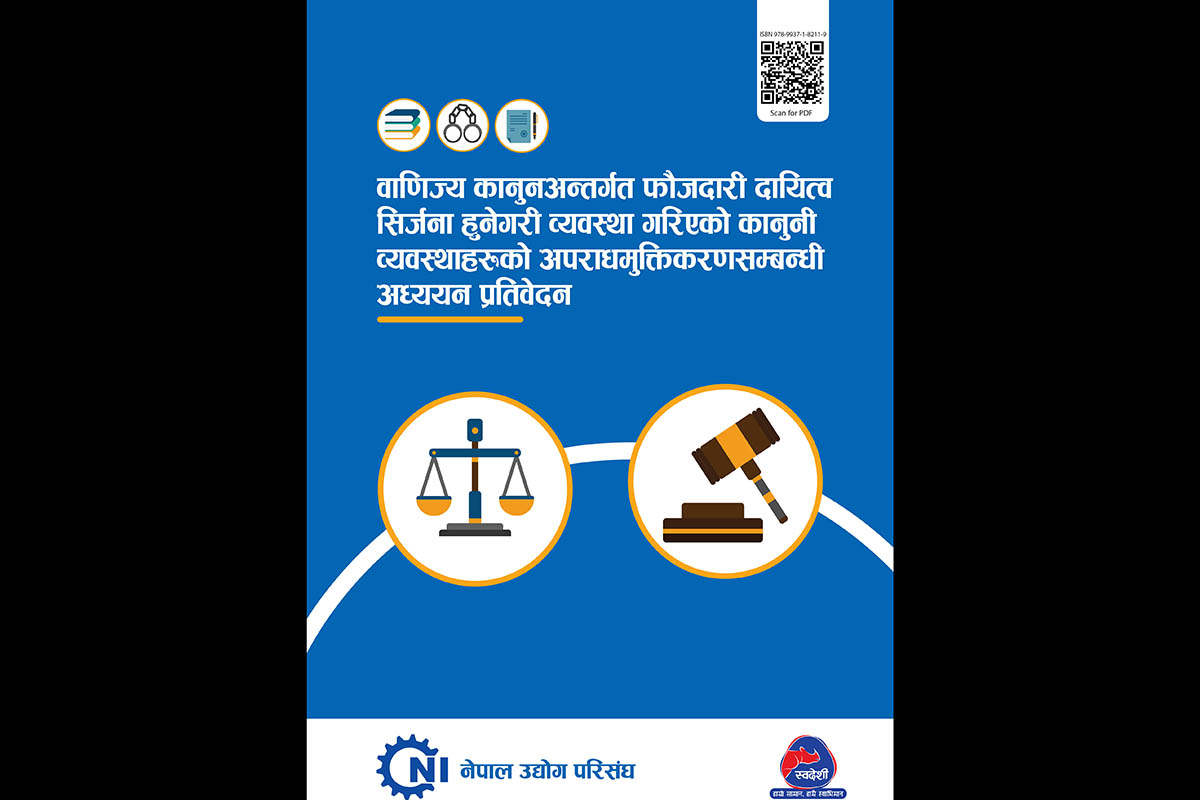
KATHMANDU: Confederation of Nepalese Industries (CNI) has published a document titled 'Decriminalisation of Legal Provisions Stipulating Criminal Liability Under Commercial Law,' examining the necessity of amending certain provisions within Nepal's commercial laws to create a business-friendly environment.
The document supports reforms aimed at establishing legal frameworks that better support industrial growth, investment, job creation, and overall economic development. It particularly recommends the decriminalisation of provisions that impose criminal liabilities on businesses for administrative errors.
In the study report, CNI President Rajesh Kumar Agrawal highlights the importance of decriminalising corporate laws. He emphasises that such reforms are critical for reducing legal uncertainties, fostering entrepreneurship, attracting investment, and achieving sustainable economic growth in Nepal. Agrawal believes that these changes will strengthen the regulatory framework and create a favourable environment for businesses to thrive.
The report identifies that many laws unjustly penalise non-malicious administrative and procedural errors, leading to legal uncertainty that discourages innovation and makes entrepreneurship and foreign investment less appealing. It recommends replacing criminal punishments with civil or administrative penalties that are more suitable for non-malicious activities. Furthermore, it advocates distinguishing deliberate fraudulent acts from inadvertent administrative mistakes, modernising laws to align with international standards and contemporary economic realities, and simplifying legal compliance through transparent and efficient processes.
The report references international examples from countries such as India, France, and Germany, where corporate decriminalisation has successfully improved business environments and eased barriers to economic activities. It suggests that decriminalisation could promote entrepreneurship, attract investment, improve Nepal’s business climate, reduce legal risks, and encourage innovation and economic growth.
The document concludes by emphasising the need to develop a legal structure that supports economic expansion through the removal of outdated criminal provisions. It calls for policies that balance regulation with the promotion of business development and economic progress. These changes are expected to create a more favourable environment for entrepreneurship and investment in Nepal, contributing to the nation's economic success.






